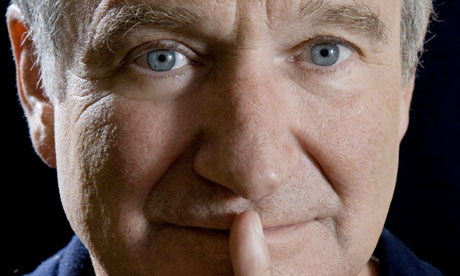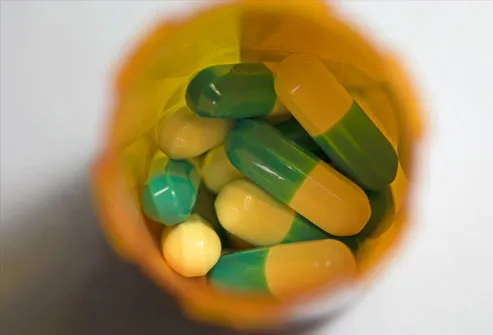This week, we as a nation mourned the loss of beloved comedian, actor, father and icon, Robin Williams.
For many, this was an opportunity to publicly reflect on several pieces of his work. From his wonderful stand-up comedies and goofy family movies to his more somber works like “One Hour Photo” and “What Dreams May Come,” Robin Williams has touched virtually anyone and everyone who has ever enjoyed a good movie. He also spent much of his time and efforts in over 50 charities; Williams personally served on the board of the Christopher & Dana Reeve Foundation for four years and was known to attend countless St. Jude events (free of charge). He provided the United Service Organization with twelve years of stand-up routines, invariably touching the lives of over 90,000 servicewomen and servicemen in 13+ countries.

Via: theguardian.com
Regardless of Robin Williams’ record, the decision to end his own life has been an opportunity for many to not only insult the man, but also a huge portion of our population. Hours after Robin Williams’ death, Shep Smith – a Fox News anchor – had this to say about Williams: “Something inside you is so horrible, or you’re such a coward, or whatever the reason, that you decide you have to end it.”
This thought process, as horrible as it is, is shared by too large a demographic in our country. I’m sure many of you have personally heard someone on the street or on a social media outlet talking about how Mr. Williams – a man they have never met, have never known, and never will know – is a selfish coward and a fool for killing himself.
Robin Williams’ passing brings an issue to the American forefront that many are uncomfortable with discussing: What is the actual value of depression? Can’t the entire ordeal just be solved with a slap on the wrist or remedied with a passionate monologue from your dearest Catholic auntie? Depression is a disease. Psychologists are hesitant to use this word as it follows the “medical model,” i.e. the process in which symptoms are seen as physiological manifestations of pathological entities (diseases). The model is meant to define physiological symptoms in the context of mental illness, which typically is only visible in a mental evaluation. This hesitance, while well founded, is harmful to our societal understanding of depression. It may be time to leave the strict linguistic interpretation of disease on the cutting room floor.

Via: webmd.com
“He could have just tried to be happier.”
This is a prevailing sentiment among those criticizing Williams. With no evidence to back their statements (Robin Williams did regularly attend AA meetings and routine therapy, by the way), I was instantly reminded of a brilliant quote by Ricky Gervais, “Telling people with depression to ‘just snap out of it’ is about as useful as telling people with cancer to, ‘just stop having cancer.’”
Sadness can be overcome with effort, absolutely. But depression is not sadness. It is more than just a bad day. Sadness is sitting inside and eating ice cream with some reruns of “Saved by the Bell.” Your heart is “broken.” Your stomach is constantly doing lunges. This may last more than a day. It may last weeks, even months. But for many, each and every day the load becomes a little bit lighter. Being clinically depressed differentiates itself placing the individual in a constant spiral, usually to the point where the individual experiencing depression begins to feel nothing at all. Allie Brosh seamlessly clarifies what it is like to face this chemical imbalance in her webcomic “Hyperbole and a Half.”

Depression is not merely an emotion. With hundreds of cases carrying clinical data, it is a scientifically proven phenomenon with a reasonable explanation. Eight years ago Dr. Jeffrey Meyer of the Canadian Centre for Addiction and Mental Health found that depressed individuals averaged 34 percent higher levels of an enzyme called monoamine oxidase A (MAO-A). MAO-A is an enzyme responsible for breaking up chemicals in the brain. Chief among this is serotonin. Serotonin has many functions including regulating appetite, growth and sleep patterns. It is also considered to be a major contributor to feelings of overall well-being and happiness. Dr. Meyer hypothesizes that the increased levels of MAO-A can invariably lead to decreased levels of serotonin. It is easy, then, to draw a short line from decreased serotonin to higher instances of depression. You would not ask someone to think their way out of the flu; asking someone to will him or her self through depression is just as inane.
Robin Williams was just one of more than 16 million adults who suffered depression in the past 12 months. For him and for many others, the symptoms are too much to handle, and many end up choosing to end everything by taking their own lives (the World Health Organization recently has reported that as many as one million people commit suicide each year). Our nation needs to take a long, serious look at how we deal with mental illness, and how our reaction as people, not a nation, affects those suffering around us.

Via: angeranddepressionhelp.com
Ultimately, it is not my place (nor anyone else’s) to say whether what Robin Williams did was selfish or not. I do not know how he suffered. Many of his close friends didn’t even know. All that we know for certain is that his family misses him dearly, and that his daughter has asked the public to respect their loss as well as their personal privacy. As with many comedians (including Owen Wilson, John Cleese, and John Candy), Williams used his gift of humor to make those around him laugh, regardless of his own demons. He was a generous soul, a great man who gave tirelessly to those around him. Williams was also a complicated man, a man with feelings just as intricate as yours. To attempt to sum him (or anyone) up in a single animated GIF, quote, or phrase doesn’t begin to do justice.
You will be missed, Robin Williams. Your legacy and warmth set you apart as one of the most remarkable people we, your fans and friends, ever had the pleasure of knowing. And hopefully we can take from Williams’ actions affirmation of a disease barely discussed and greatly frowned upon.
If anyone reading this is personally experiencing signs of depression, or if you know someone who would benefit from clinical help, here are some helpful resources (including some websites for Florida’s own treatment facilities):
The National Alliance on Mental Illness
Do you know any places or websites that have helped you or your friends through depression? How did you personally feel after Robin Williams’ passing? Be sure to comment below. We love hearing from all of you!
Featured photo courtesy of: freewallsource.com







